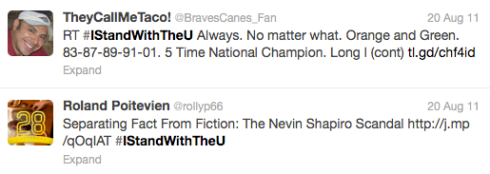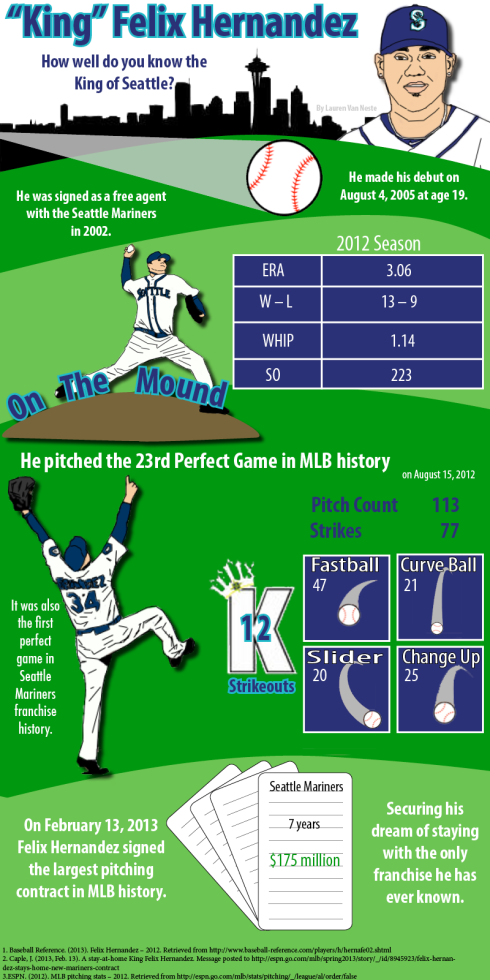How can sports fans aid in crisis communication via social media? To find out, I read an academic journal article this week for my public relations class. I chose the following article:
Brown, N. A., & Billings, A. C. (2013). Sports fans as crisis communicators on social media websites. Public Relations Review, 39(1), 74-81. doi:10.1016/j.pubrev.2012.09.012
News of NCAA scandals has been broken via the Internet over the past couple years. The authors research how the fans are now able to support crisis communication via social media networking – focusing their research on Twitter. For their research they used the University of Miami scandal of 2011, where Nevin Shapiro was accused of violating NCAA regulations on scholarships for 72 athletes.

Photo by RMTip21
Method
The authors used content analysis to evaluate three research questions. They used content from 75 Twitter users’ who identified as Miami Hurricane fans. The content of the users tweets from Aug. 16 to Sept. 20, 2011, consisted of 425 tweets and was used as the authors’ final sample. The authors examined the tweets using Coombs’ nine reputation repair strategies: attack the accuser, denial, scapegoat, excuse, justification, reminder and ingratiation.
Research Question One: “In what manner do University of Miami fans utilize Twitter to communicate different reputation repair strategies?”
Results
- The three most common reputation repair strategies were ingratiation, reminder, and attack the accuser.
- Fans used ingratiation to rally “true Miami Fans.”
- The use of the #IStandWithTheU hashtag supported fans’ strategy of ingratiation.
- Many of the tweets were retweeted by other Miami fans.
- Reminder tweets addressed Miami’s history of athletics, number of athletes who became professionals and academic achievements.
- Attack the accuser tweets were largely directed towards media outlets for reporting the story. They included ESPN, CBS Sports and Yahoo!.

Various fan tweets including the #IStandWithTheU
Research Question Two: “Do Twitter user reputation repair strategies change over time?”
Results
During the five weeks analyzed, the reputation repair strategies did change.
- Week one was focused on ingratiation, reminder and attack the accuser.
- Week two continued to focus on ingratiation and reminder tweets but with less frequency than the initial week.
- Week three focused more on reminder tweets with a slight increase from week two. Ingratiation tweets were still present, too.
- Week four had the least number of tweets containing reputation repair strategies.
- The final week doubled in reputation repair strategies from week four by focusing on ingratiation, reminder and diverting. Diverting was used because Miami played Ohio State – another university facing similar NCAA accusations.
Research Question Three: “Are unique types of crisis communication strategies revealed in the tweets of Miami fans?”
Results
- The first unique strategy used was links.
- The second unique strategy used was organized hashtags.
- The final unique strategy used was diverting attention.
Limitations
- The sample size is a limitation in this case and would need to be larger for more thorough research.
- The definition of a “true” or “active” fan needs to be included for future research.
- Different scandals causing crisis communication in sports may also pose different results.
- For example, the Penn State scandal may not see the same support of fans as this Miami University case.
Conclusion
As a member of the social media generation, I find that fans will continue to aid sports organizations in crisis communication. Sports fans are an important tool in reputation repair strategies, and with social media, fans can provide sports organizations with greater support.





